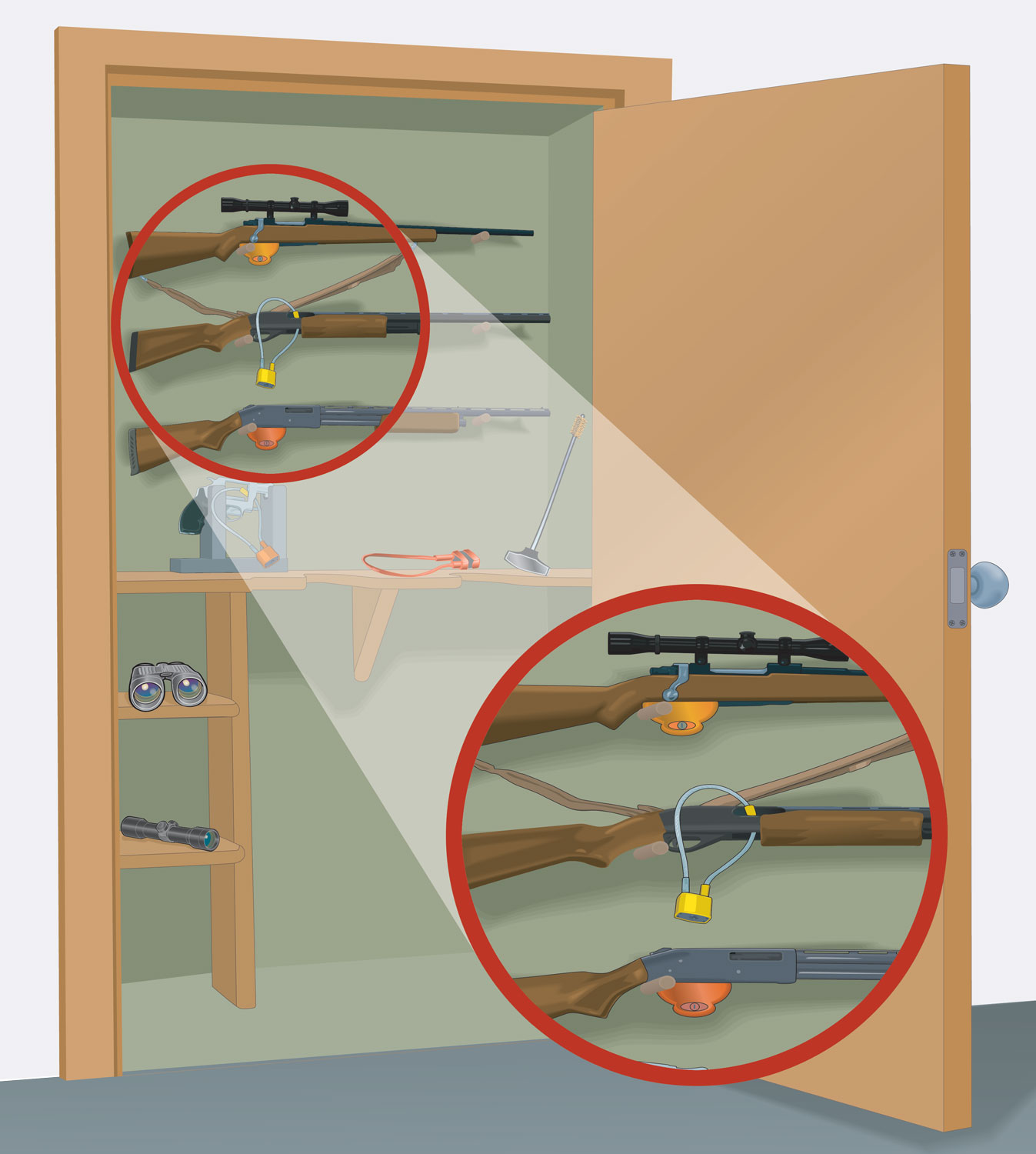Storing Your Firearm

Firearms must be stored unloaded and in a locked location, separate from ammunition.
- The storage area should be cool, clean, and dry. Storing firearms in closed gun cases or scabbards isn’t recommended because moisture can accumulate.
- Store guns horizontally, or with the muzzle pointing down. When guns are stored upright, gravity pulls gun oil downward into the action, which forms a sticky film. Oil also can drain onto the stock, softening the wood.
- Displaying guns in glass cabinets or wall racks is an invitation to thieves and curious children.
- If guns are stored in an accessible area, such as a closet, put a locking device on each one.
- Ideally, guns should be hidden from view and locked. Storage devices with hidden compartments are available. For the best protection against theft and fire damage, purchase a safe.
Storing Firearms in the Home Safely
Responsible hunters make certain the firearms in their home are not easily accessible to anyone who may not be trained in the safe handling of firearms.
- Always carefully and completely unload sporting firearms before bringing them into the home. Never load a sporting firearm in the home.
- Store firearms in your home in a secure location inaccessible to children. Store ammunition in a separate locked location, also away from children.
- Remember to place firearms in their proper storage location as soon as you return from a hunt or from practicing at the range.
- Always carefully check firearms to make sure that they are unloaded whenever you remove them from storage.